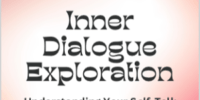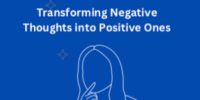Description
Cognitive Distortion Challenge Activity
This exercise, titled “Cognitive Distortion Challenge Activity,” provides a dynamic approach to identifying and restructuring irrational thoughts.
Introduction to the Cognitive Distortion Challenge Activity
In the realm of therapy, one of the most powerful ways to help clients break free from negative thought patterns is by addressing cognitive distortions—irrational ways of thinking that skew reality and contribute to emotional distress. Cognitive distortions can create a lens through which clients view their experiences, often magnifying negative aspects while overlooking positive ones.
The “Cognitive Distortion Challenge Activity” is designed to equip you, as a therapist, with a dynamic and interactive tool to help clients identify, challenge, and reframe these distortions. This activity aims to enhance clients’ awareness of their automatic thoughts and empower them to develop more balanced, realistic thinking patterns.
Throughout this exercise, you will guide your clients through:
- Identifying Distortions: Helping them recognize the specific cognitive distortions at play in their thoughts.
- Challenging Thoughts: Using Socratic questioning and evidence-based reasoning to challenge irrational beliefs.
- Reframing Thoughts: Assisting clients in developing more balanced and adaptive thoughts that promote emotional resilience and well-being.
Contents:
- Cognitive Distortion Challenge Worksheet
- Purpose: Provides a structured format for clients to document situations, automatic thoughts, and the cognitive distortions they identify.
- Features: Sections for detailing the situation, automatic thoughts, distortion type, evidence for and against, and a balanced thought.
- Thought Record Diary Template
- Purpose: Encourages clients to keep a log of their thoughts, emotions, and cognitive distortions over time.
- Features: Daily or weekly entries with prompts for situation, emotion, automatic thought, cognitive distortion, and evidence for and against the thought.
- Socratic Questioning Guide
- Purpose: A comprehensive set of open-ended questions designed to challenge clients’ distorted thoughts and encourage critical thinking.
- Features: Questions to explore evidence, consider alternative perspectives, and facilitate thought restructuring.
- Cognitive Restructuring Worksheet
- Purpose: Helps clients practice restructuring their thoughts by challenging distortions and developing balanced alternatives.
- Features: Steps for identifying automatic thoughts, recognizing distortions, listing evidence, and crafting balanced thoughts.
- Role-Playing Scenarios
- Purpose: Provides practical, interactive exercises for clients to practice identifying and challenging cognitive distortions in real-life scenarios.
- Features: Scenario-based activities to enhance skills in thought identification, questioning, and reframing.
Benefits:
- Increased Awareness: Helps clients become more aware of their automatic thoughts and the distortions that influence them.
- Practical Tools: Includes ready-to-use worksheets and guides, making it easy to integrate into therapy sessions.
- Empowerment: Equips clients with skills to independently challenge and reframe their negative thoughts, promoting long-term cognitive and emotional resilience.
Ideal For:
- Therapists work with clients experiencing anxiety, depression, and other mood disorders.
- Professionals seeking to enhance their cognitive-behavioral therapy (CBT) techniques and interventions.
By engaging in this activity, clients will gain practical skills to apply in everyday situations, fostering greater cognitive flexibility and reducing the impact of negative emotions. Whether you are introducing these concepts for the first time or reinforcing them with seasoned clients, this exercise will serve as a valuable addition to your therapeutic toolkit.





Reviews
There are no reviews yet.